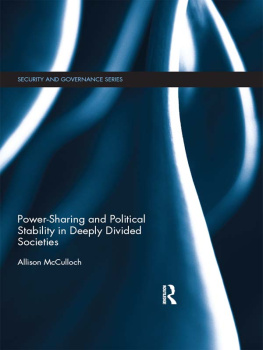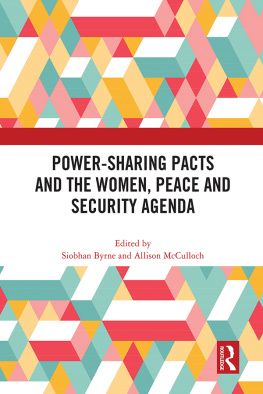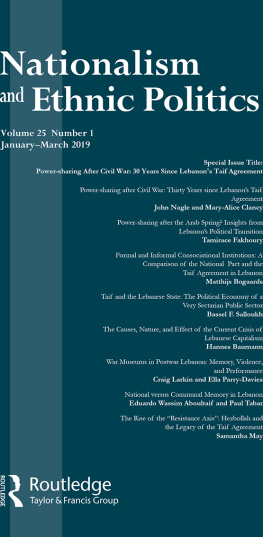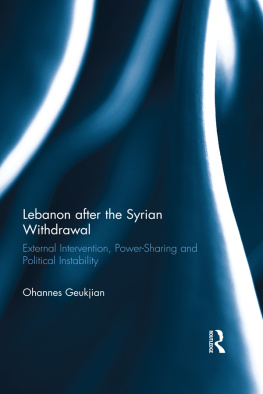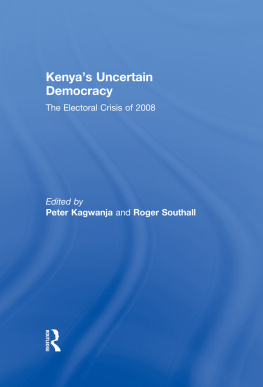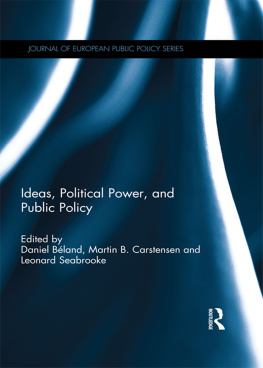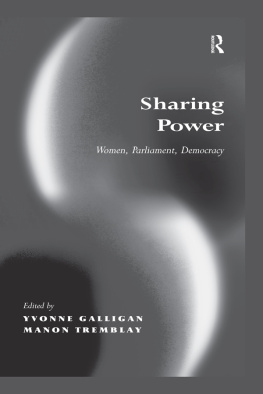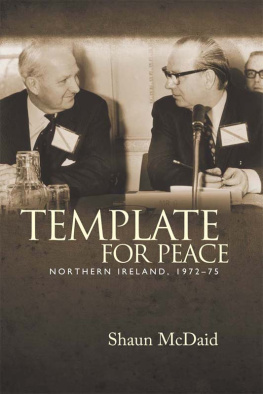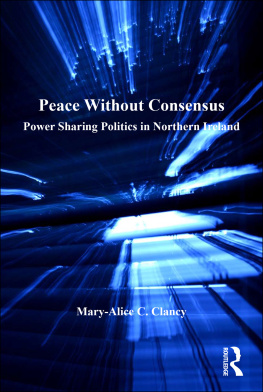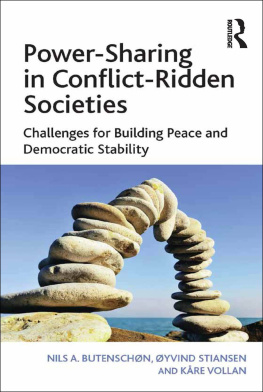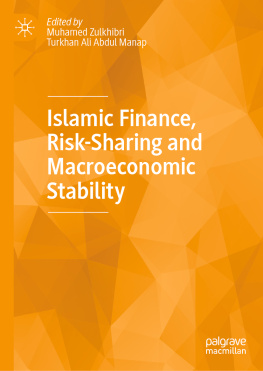Power-Sharing and Political Stability in Deeply Divided Societies
Nearly all the peace accords signed in the last two decades have included power-sharing in one form or another. The notion of both majority and minority segments co-operating for the purposes of political stability has informed both international policy prescriptions for post-conflict zones and home-grown power-sharing pacts across the globe.
This book examines the effect of power-sharing forms of governance in bringing about political stability amid deep divisions. It is the first major comparison of two power-sharing designs consociationalism and centripetalism and it assesses a number of cases central to the debate, including Nigeria, Sri Lanka, Fiji, Bosnia and Herzegovina, Burundi, and Northern Ireland. Drawing on information from a variety of sources, such as political party manifestoes and websites, media coverage, think tank reports, and election results, the author reaches significant conclusions about power-sharing as an invaluable conflict-management device.
This text will be of key interest to students and scholars of ethnic conflict management, power-sharing, ethnic politics, democracy and democratization, comparative constitutional design, comparative politics, intervention, and peace-building.
Allison McCulloch is an Associate Professor in the Department of Political Science at Brandon University, Canada.
Security and governance series
Edited by Fiona B. Adamson
School of Oriental and African Studies, University of London
Roland Paris
University of Ottawa
Stefan Wolff
University of Nottingham
Editorial Board:
Mohammed Ayoob, Michigan State University
Richard Caplan, University of Oxford
Neta Crawford, Boston University
Stuart Croft, University of Warwick
Donatella della Porta, European University Institute
Michael Doyle, Columbia University
Lynn Eden, Stanford University
Takashi Inoguchi, University of Tokyo
Elizabeth Kier, University of Washington
Keith Krause, Graduate Institute of International Studies, Geneva
Bruce Russett, Yale University
Timothy Sisk, University of Denver
Janice Gross Stein, University of Toronto
Stephen Stedman, Stanford University
Mark Zacher, University of British Columbia
This series reflects the broadening conceptions of security and the growing nexus between the study of governance issues and security issues. The topics covered in the series range from issues relating to the management of terrorism and political violence, non-state actors, transnational security threats, migration, borders, and homeland security to questions surrounding weak and failing states, post-conflict reconstruction, the evolution of regional and international security institutions, energy and environmental security, and the proliferation of WMD. Particular emphasis is placed on publishing theoretically-informed scholarship that elucidates the governance mechanisms, actors, and processes available for managing issues in the new security environment.
Rethinking Japanese Security
Peter J. Katzenstein
State building and International Intervention in Bosnia
Roberto Belloni
The UN Security Council and the Politics of International Authority
Edited by Bruce Cronin and Ian Hurd
The Dilemmas of Statebuilding
Confronting the contradictions of postwar peace operations
Edited by Roland Paris and Timothy D. Sisk
Protest, Repression and Political Regimes
An empirical analysis of Latin-America and sub-Saharan Africa
Sabine C. Carey
The International Humanitarian Order
Michael N. Barnett
The International Politics of Mass Atrocities
The case of Darfur
Edited by David R. Black and Paul D. Williams
Truth Commissions and Transitional Societies
The impact on human rights and democracy
Eric Wiebelhaus-Brahm
Emerging Transnational (In) Security Governance
A statist-transnationalist approach
Edited by Ersel Aydinli
Peacebuilding and Rule of Law in Africa
Just peace?
Edited by Chandra Lekha Sriram, Olga Martin-Ortega and Johanna Herman
Hegemony and Democracy
Bruce Russett
The Securitization of Migration
A study of movement and order
Philippe Bourbeau
The Organization of European Security Governance
Internal and external security in transition
Ursula C. Schroeder
Debating a Post-American World
What lies ahead
Sean Clark and Sabrina Hoque
Power and Progress
International politics in transition
Jack Snyder
Legitimacy, Peace Operations and GlobalRegional Security
The African Union-United Nations Partnership in Darfur
Linna Gelot
The European Union and Military Conflict Management
Defining, evaluating and achieving success
Annemarie Peen Rodt
Power-Sharing and Political Stability in Deeply Divided Societies
Allison McCulloch
First published 2014
by Routledge
2 Park Square, Milton Park, Abingdon, Oxon OX14 4RN
and by Routledge
711 Third Avenue, New York, NY 10017
Routledge is an imprint of the Taylor & Francis Group, an informa business
2014 Allison McCulloch
The right of Allison McCulloch to be identified as author of this work has been asserted by her in accordance with sections 77 and 78 of the Copyright, Designs and Patents Act 1988.
All rights reserved. No part of this book may be reprinted or reproduced or utilized in any form or by any electronic, mechanical, or other means, now known or hereafter invented, including photocopying and recording, or in any information storage or retrieval system, without permission in writing from the publishers.
Trademark notice: Product or corporate names may be trademarks or registered trademarks, and are used only for identification and explanation without intent to infringe.
British Library Cataloguing in Publication Data
A catalogue record for this book is available from the British Library
Library of Congress Cataloging in Publication Data
McCulloch, Allison.
Power-sharing and political stability in deeply divided societies / Allison McCulloch.
pages cm. (Security and governance)
Includes bibliographical references and index.
1. Coalition governments. 2. Political stability. 3. Conflict management. 4. Coalition governmentsCase studies. 5. Political stabilityCase studies. 6. Conflict managementCase studies. I. Title.
JF51.M447 2014
324dc23
2013047094
ISBN: 978-1-138-02476-2 (hbk)
ISBN: 978-1-315-77369-8 (ebk)
Typeset in Times New Roman
by Wearset Ltd, Boldon, Tyne and Wear

